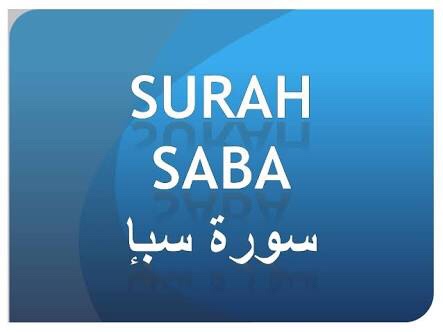Concerning the types of worship to be performed during these ten days: one must understand that these days are a great blessing from Allaah to His slave, which is appreciated properly by the actively righteous. It is the Muslim’s duty to appreciate this blessing and make the most of the opportunity, by devoting these ten days to paying more attention to striving hard in worship.
Among His blessings to His slaves, Allaah has given us many ways in which to do good and worship Him, so that the Muslim may be constantly active and consistent in his worship of his Lord.
Among the good deeds which the Muslim should strive to do during the first ten days of Dhu’l-Hijjah are:
✅ Fasting. It is Sunnah to fast on the ninth day of Dhu’l-Hijjah, because the Prophet (peace and blessings of Allaah be upon him) urged us to do good deeds during this time, and fasting is one of the best of deeds. Allaah has chosen fasting for Himself, as is stated in the hadeeth qudsi: “Allaah says: ‘All the deeds of the son of Adam are for him, except for fasting, which is for Me and I am the One Who will reward him for it.’” (Reported by al-Bukhaari, 1805).
The Prophet (peace and blessings of Allaah be upon him) used to fast on the first nine days of Dhu’l-Hijjah. It was narrated from Hunaydah ibn Khaalid from his wife, that one of the wives of the Prophet (peace and blessings of Allaah be upon him) said: The Prophet (peace and blessings of Allaah be upon him) used to fast on the first nine days of Dhu’l-Hijjah and the day of ‘Ashoora’, and three days each month, the first Monday of the month and two Thursdays. Narrated by al-Nasaa’i, 4/205 and by Abu Dawood; classed as saheeh by al-Albaani in Saheeh Abi Dawood, 2/462.
✅ Takbeer. It is Sunnah to say Takbeer (“Allaahu akbar”), Tahmeed (“Al-hamdu Lillaah”), Tahleel (“La ilaha ill-Allaah”) and Tasbeeh (“Subhaan Allaah”) during the first ten days of Dhu’l-Hijjah, and to say it loudly in the mosque, the home, the street and every place where it is permitted to remember Allaah and mention His name out loud, as an act of worship and as a proclamation of the greatness of Allaah, may He be exalted.
Men should recite these phrases out loud, and women should recite them quietly.
Allaah says (interpretation of the meaning):
“That they might witness things that are of benefit to them (i.e., reward of Hajj in the Hereafter, and also some worldly gain from trade, etc.), and mention the name of Allaah on appointed days, over the beast of cattle that He has provided for them (for sacrifice)…” [al-Hajj 22:28]
The majority of scholars agree that the “appointed days” are the first ten days of Dhu’l-Hijjah, because of the words of Ibn ‘Abbaas (may Allaah be pleased with him and his father): “The ‘appointed days’ are the first ten days (of Dhu’l-Hijjah).”
The Takbeer may include the words “Allaahu akbar, Allaahu akbar, la ilaaha ill-Allaah; wa Allaahu akbar wa Lillaahi’l-hamd (Allaah is Most Great, Allaah is Most Great, there is no god but Allaah; Allaah is Most Great and to Allaah be praise),” as well as other phrases.
Takbeer at this time is an aspect of the Sunnah that has been forgotten, especially during the early part of this period, so much so that one hardly ever hears Takbeer, except from a few people. This Takbeer should be pronounced loudly, in order to revive the Sunnah and as a reminder to the negligent. There is sound evidence that Ibn ‘Umar and Abu Hurayrah (may Allaah be pleased with them) used to go out in the marketplace during the first ten days of Dhu’l-Hijjah, reciting Takbeer, and the people would recite Takbeer when they heard them. The idea behind reminding the people to recite Takbeer is that each one should recite it individually, not in unison, as there is no basis in Sharee’ah for doing this.
Reviving aspects of the Sunnah that have been virtually forgotten is a deed that will bring an immense reward, as is indicated by the words of the Prophet (peace and blessings of Allaah be upon him): “Whoever revives an aspect of my Sunnah that is forgotten after my death, he will have a reward equivalent to that of the people who follow him, without it detracting in the least from their reward.” (Reported by al-Tirmidhi, 7/443; this is a hasan hadeeth because of corroborating asaaneed).
✅ Performing Hajj and ‘Umrah. One of the best deeds that one can do during these ten days is to perform Hajj to the Sacred House of Allaah. The one whom Allaah helps to go on Hajj to His House and to perform all the rituals properly is included in the words of the Prophet (peace and blessings of Allaah be upon him): “An accepted Hajj brings no less a reward than Paradise.”
Doing more good deeds in general, because good deeds are beloved by Allaah and will bring a great reward from Him. Whoever is not able to go to Hajj should occupy himself at this blessed time by worshipping Allaah, praying (salaat), reading Qur’an, remembering Allaah, making supplication (du’aa’), giving charity, honouring his parents, upholding the ties of kinship, enjoining what is good and forbidding what is evil, and other good deeds and acts of worship.
✅ Sacrifice. One of the good deeds that will bring a person closer to Allaah during these ten days is offering a sacrifice, by choosing a high-quality animal and fattening it, spending money for the sake of Allaah. (more information to follow, in sha Allaah).
✅ Sincere repentance. One of the most important things to do during these ten days is to repent sincerely to Allaah and to give up all kinds of disobedience and sin. Repentance means coming back to Allaah and foregoing all the deeds, open and secret, that He dislikes, out of regret for what has passed, giving it up immediately and being determined never to return to it, but to adhere firmly to the Truth by doing what Allaah loves.
If a Muslim commits a sin, he must hasten to repent at once, without delay, firstly because he does not know when he will die, and secondly because one evil deed leads to another.
Repentance at special times is very important because in most cases people’s thoughts turn towards worship at these times, and they are keen to do good, which leads to them recognizing their sins and feeling regret for the past. Repentance is obligatory at all times, but when the Muslim combines sincere repentance with good deeds during the days of most virtue, this is a sign of success, in sha Allaah. Allaah says (interpretation of the meaning): “But as for him who repented, believed and did righteous deeds, then he will be among those who are successful.” [al-Qasas 28:67]
The Muslim should make sure that he does not miss any of these important occasion, because time is passing quickly. Let him prepare himself by doing good deeds which will bring him reward when he is most in need of it, for no matter how much reward he earns, he will find it is less than he needs; the time of departure is at hand, the journey is frightening, delusions are widespread, and the road is long, but Allaah is ever watchful, and to Him will we return and render account. As the Qur’aan says (interpretation of the meaning):
“So whosoever does good equal to the weight of an atom, shall see it,
And whosoever does evil equal to the weight of an atom, shall see it.”
[al-Zalzalah 99:7-8]
There is much to be gained, so make the most of the opportunity afforded by these invaluable and irreplaceable ten days. Hasten to do good works, before death strikes, before one can regret one’s negligence and failure to act, before one is asked to return to a place where no prayers will be answered, before death intervenes between the hopeful one and the things he hopes for, before you are trapped with your deeds in the grave.
O you whose hard heart is as dark as the night, is it not time that your heart was filled with light and became soft? Expose yourself to the gentle breeze of your Lord’s mercy during these ten days, for Allaah will cause this breeze to touch whomever He wills, and whoever is touched by it will be happy on the Day of Judgement.
May Allaah bless our Prophet Muhammad and all his Family and Companions.
(Culled from islamqa)




